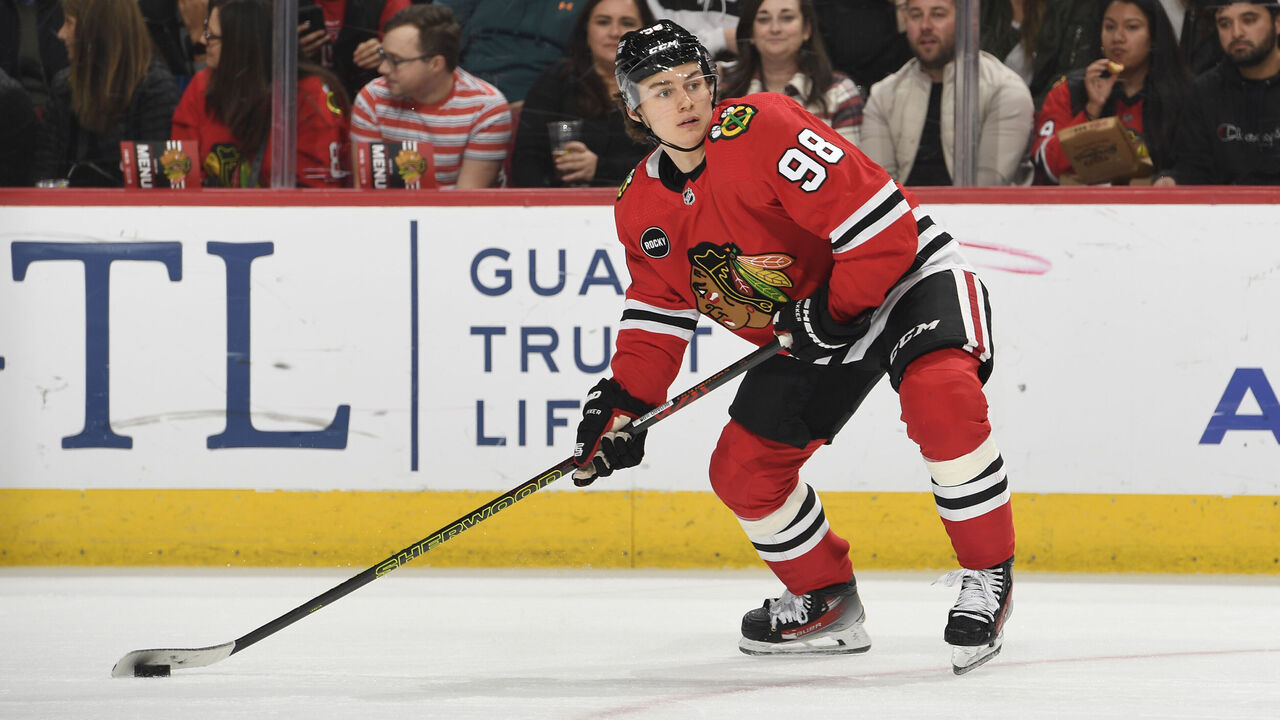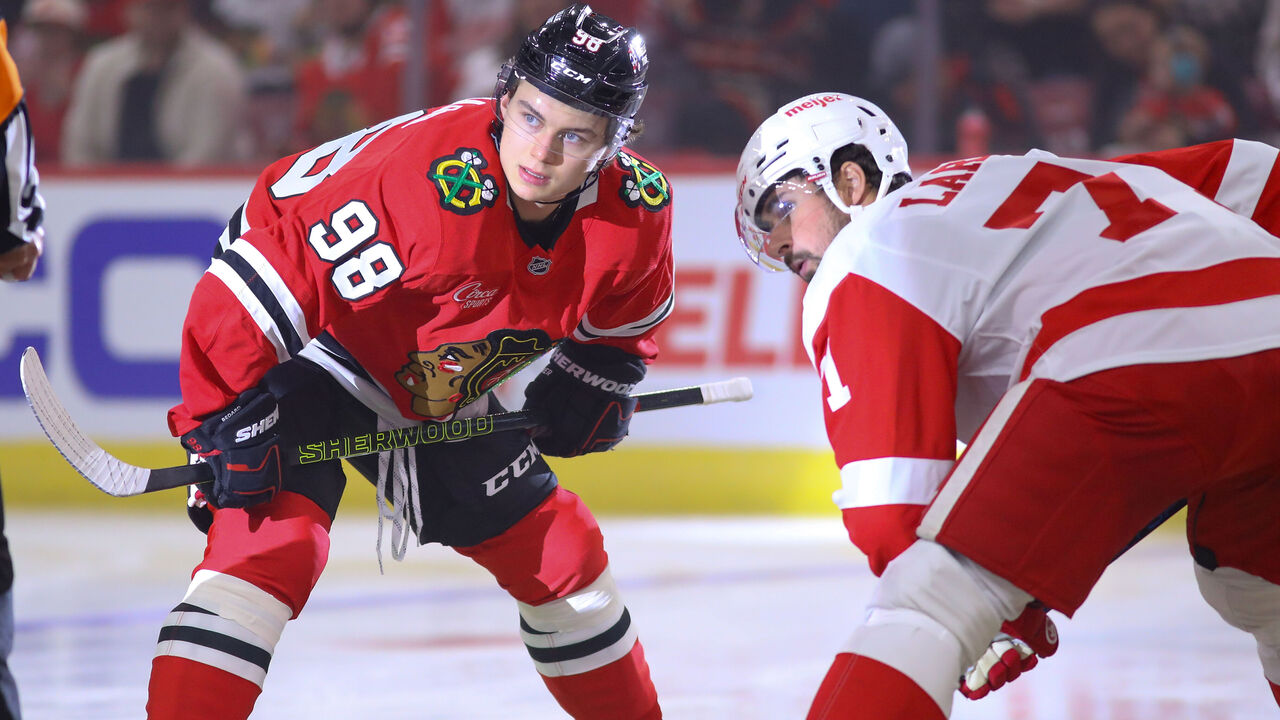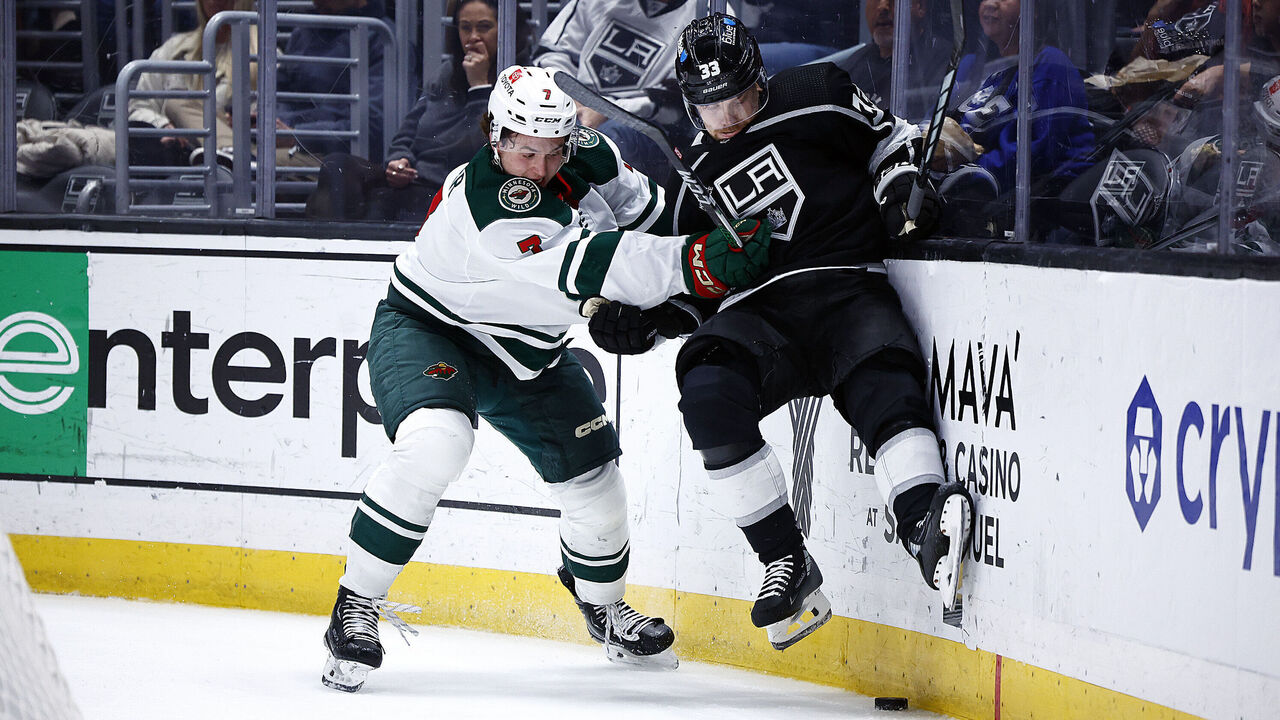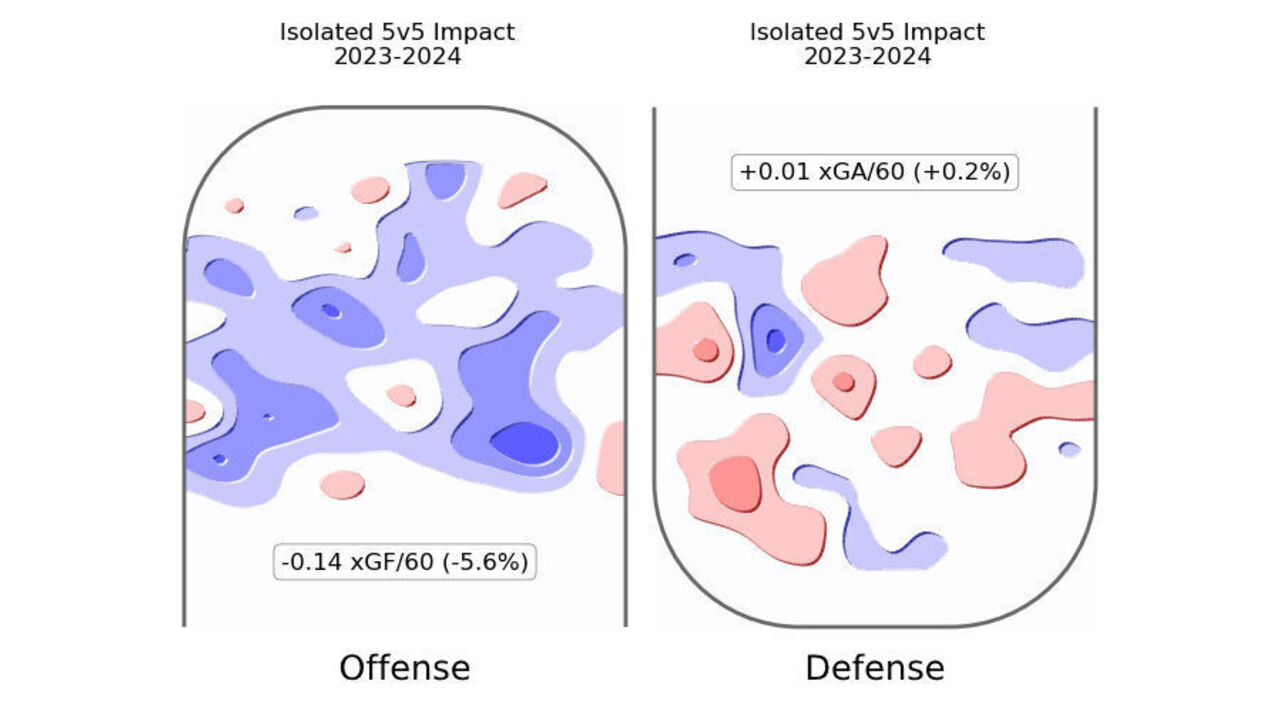Sophomore slump or bump? What to expect from Bedard and Faber in Year 2
It can be easy to forget that Nathan MacKinnon, a consensus top-three hockey player on the planet, was once a young NHLer searching for answers.
MacKinnon, the first pick in the 2013 NHL draft, burst onto the scene as an 18-year-old, recording 63 points in 82 games. But the Calder Trophy winner's production dipped to an average of 54 points per 82 games over the next three seasons.
Now 29 and entering his 12th year, MacKinnon has enough space between then and now to grasp what happened. In short, the Colorado Avalanche superstar fell off from ages 19-21 because he thought he had it all figured out. He failed to progress as a player and the league caught up to him.
"When you have a good rookie year, there might be less fear going into your second year. Fear can drive you," MacKinnon said in September at the NHL/NHLPA player media tour in Las Vegas. "You don't know what to expect. You're worried you won't even be good in the NHL, and then once you think you're a little good, it can go downhill. It definitely happened to me."
MacKinnon's wavy career arc is a reminder that player development is rarely linear, even among the super talented. "Sophomore slump" is part of the pro sports vernacular for this exact reason. It's incredibly difficult for second-year players of all kinds to meet heightened internal and external expectations.
Chicago Blackhawks sniper Connor Bedard and Minnesota Wild workhorse Brock Faber finished first and second in 2023-24 Calder voting. What can we realistically expect from each player in their second acts? What potential challenges might the sophomores face? Let's dig in, with help from pro hockey analyst Jack Han.
Connor Bedard
Everybody wanted a piece of Bedard ahead of and during his rookie season. He was the shiny new toy - a fresh face of the league with enormous upside.
"Macklin will be dealing with all of that instead," Bedard said recently with a laugh, referring to media and fan interest inevitably shifting toward Sharks super prospect and Vancouver-area buddy Macklin Celebrini.

Bedard's on-ice impact last season mirrored the hype - 22 goals, 39 assists, and a 0.90 points-per-game rate that ranks third this century among 18-year-old NHLers, behind only Sidney Crosby's 1.26 and Connor McDavid's 1.07. The shoot-first center led or co-led 31st-place Chicago in goals, assists, and points, despite missing 14 games with a broken jaw and skating alongside serviceable yet unremarkable veterans. (Bedard's three most common linemates were Philipp Kurashev, Nick Foligno, and Ryan Donato.)
The 2023-24 Hawks were so deprived of firepower that Bedard was the central focus for opposing teams from his debut onward. "You didn't need to game-plan against anybody else," is how Han - a former AHL assistant coach who writes the popular Hockey Tactics newsletter - put it.
Chicago brass was well aware of this and got to work in the offseason. Puck hound Tyler Bertuzzi, playmaker Teuvo Teravainen, and speedster Ilya Mikheyev were all added to the forward group. Meanwhile, former MVP Taylor Hall has recovered from the ACL tear that shelved him for most of last season.
Better support will reroute some pressure away from Bedard, making the explosive trigger man more dangerous. The righty scored on 10.7% of his shots last year, which is very good for an average NHL forward but a tad low for someone with Bedard's elite, deceptive wrist and snap shots.
"If you have a good shot and you're a player who can consistently get to dangerous areas of the ice, there's nothing wrong with shooting 10%," Han said. "The difference between a 10% shooter and a 13% or 15% shooter is often not so much you and your talent as it is your teammates and their talent. Why is it that Auston Matthews or Steven Stamkos can shoot 15%? It's because they've got Mitch Marner and Marty St. Louis setting them up."

Defensive play and faceoffs were Bedard's main weaknesses as a rookie. (He won a ghastly 38.9% of his 532 faceoffs.) Also part of the learning curve - realizing how smart NHLers are relative to junior players. "Everyone's always in the right position. That was something I wasn't used to at the start," said Bedard, who played two full seasons in the WHL. "I was making plays, predicting a guy would move, and I'd just give (the puck) right to them."
Bedard, who focused on improving his speed and power in offseason workouts, was understandably tight-lipped about his personal performance goals heading into Year 2. But in early September, the 19-year-old mentioned emphasizing overall consistency and finding a way to impact each game on a deeper level.
Assuming good health, simply being on a team with a respectable supporting cast should boost Bedard's numbers. Han believes an 80-point pace (30-35 goals and 45-50 assists over 82 games) is a "reasonable" bet. While nobody's immune to the sophomore slump, No. 98 on Chicago is an unlikely victim.
"I've been very motivated since I was 4 or 5 years old," Bedard said. "I'm not overly concerned about that. Maybe I have a slump, maybe I play really well. You don't know the future."
Brock Faber
Faber was the only other player to receive a first-place vote for last year's Calder, with an excellent first full season in Minnesota convincing 42 of 194 voters to slot him ahead of Bedard.
His supporters were enamored by an abnormally hefty workload and relatively polished game. Faber, who was usually pitted against other teams' best forwards, logged 2,047 total minutes, the most by a rookie since the NHL began tracking individual time-on-ice numbers in 1997. Minnesota, a team that missed the Western Conference playoff cutline by 11 points, fared much better at five-on-five with Faber on the ice (plus-one) versus off (minus-five).
"I learned a lot. It's stuff you can't really learn in the offseason," Faber said of the rookie grind. "You can't learn how to take a two-on-one against McDavid and (Leon) Draisaitl. When you're thrown into the fire, that's how you learn. When you make mistakes, that's how you learn. I made plenty of mistakes, and I learned a lot from those mistakes, offensively and defensively."

Han likes the player - "Faber's ahead of the curve for a young defenseman" - and believes there's a strong chance the eight-year, $68-million contract extension Faber signed this offseason will age gracefully as the salary cap continues to rise. Still, he's worried about the gap between Faber's top-pairing reputation and the underlying performance markers of his rookie year.
HockeyViz's isolated impact heat maps suggest Faber was essentially a net-negative offensive player and net-neutral defensive player at five-on-five. Also, it's often overlooked that he contributed to the NHL's third-worst penalty kill.
"If you're talking about sophomore slumps, unfortunately, Faber's got a perfect storm brewing," Han said. "For the first time as a pro, he's coming into a season with something to lose. That's a very dangerous mindset. You're now in a no-win situation and the game can get away from you very quickly."

Kraken forward Matty Beniers found himself in a similar situation last season. He set the bar high with a Calder-winning 2022-23. Then, in Year 2, his puck luck leveled out, his defensive responsibilities increased, and opposing teams targeted his weaknesses. Beniers was issued the "sophomore slump" label by midseason - even though he didn't actually take a tangible step backward.
Helping the expectations around Faber? He played the final two months of 2023-24 with two cracked ribs. That might partially explain the wonky stats.
Not helping Faber? He's a subtle player, far from the flashiest on the Wild. He's a strong skater, puck mover, and distributor (47 points as a rookie), but stick-checking and blocking shots are his bread and butter. First and foremost, he wants to kill the opposing attack every time he steps on the ice.
"I can try to impact the game more than just point-getting and power-play time and ice time. I don't know. I feel ready. I feel prepared. I'm healthy. I'm confident. And I'm still learning. I'm still trying to get better," Faber said.
"But that's how I look at it, right? I'm not someone who hangs my hat on scoring or getting points. I never have been and I never will be, as I'm a defenseman. I look at it a little differently. I want to defend against the best players in the world better this year than I did last year. Everyone talks about how I played great, but also, there were games when I was playing against those guys when I was horrible and they were great. So that's how I kind of look it. Little things, little milestones like that."
John Matisz is theScore's senior NHL writer. Follow John on Twitter (@MatiszJohn) or contact him via email ([email protected]).
HEADLINES
- Penguins' Nedeljkovic becomes 1st goalie with goal, assist in same game
- Boeser: Canucks could view me as 'easy guy' to trade as pending UFA
- Devils' Fitzgerald: We want another center for 'extra oomph'
- Sweeney: Canada 'ideally' would've waited to name 4 Nations goalies
- Islanders' Tsyplakov suspended 3 games for hit to Flyers' Poehling's head